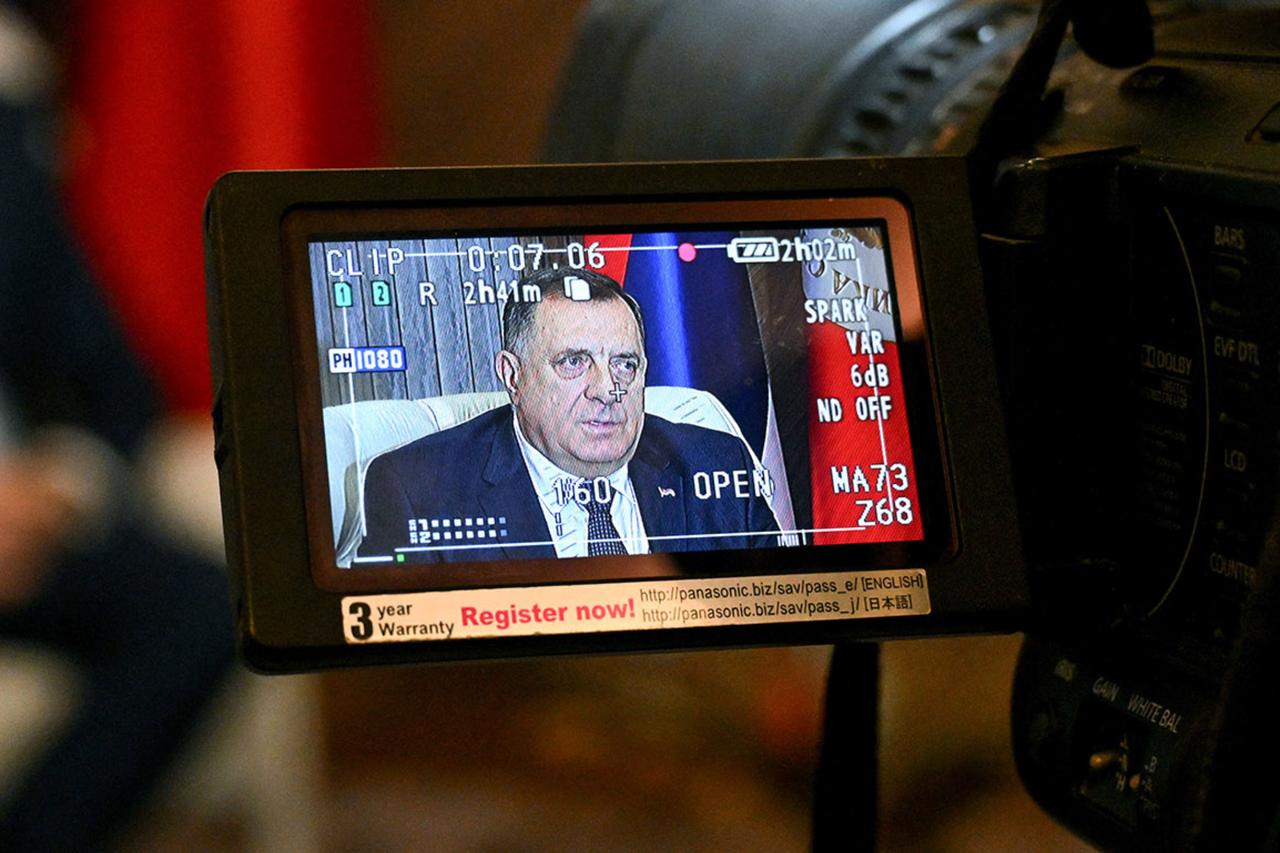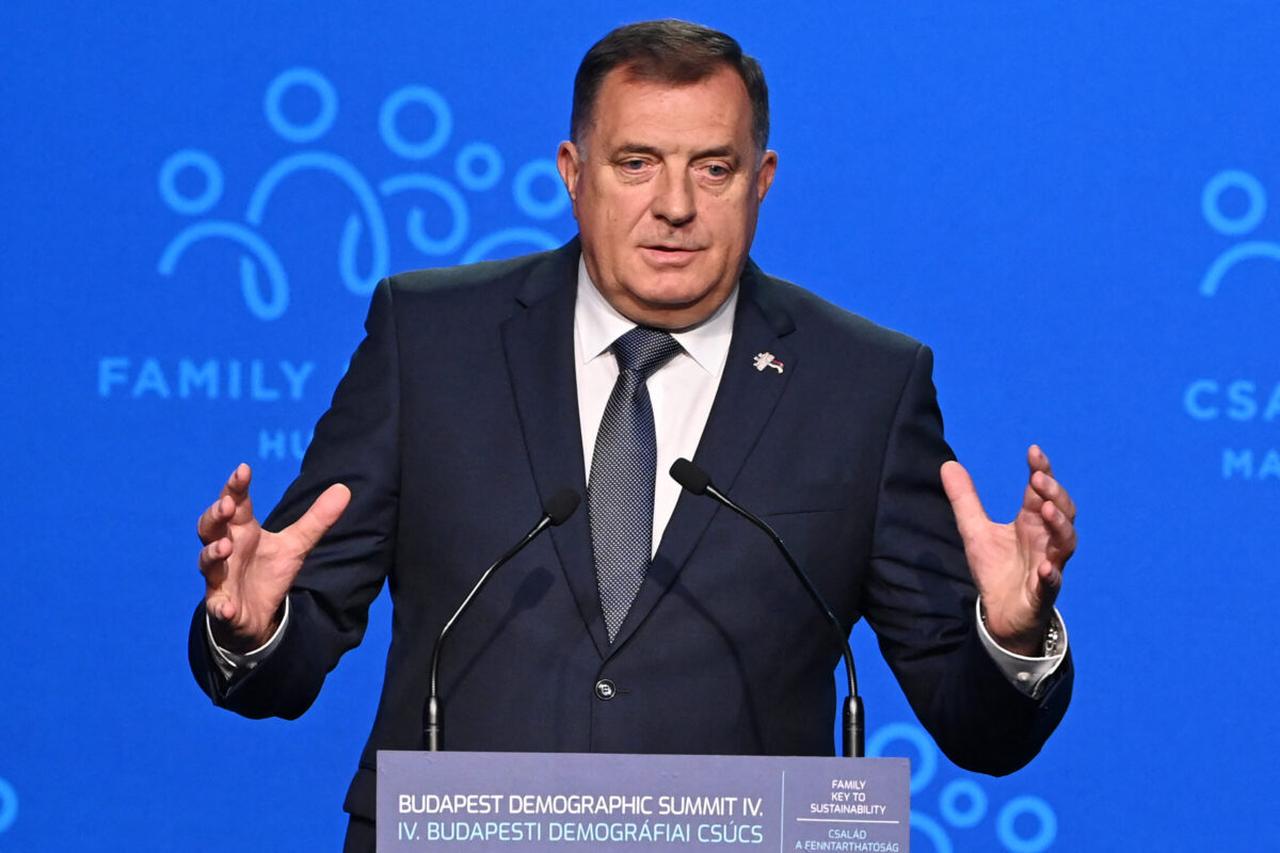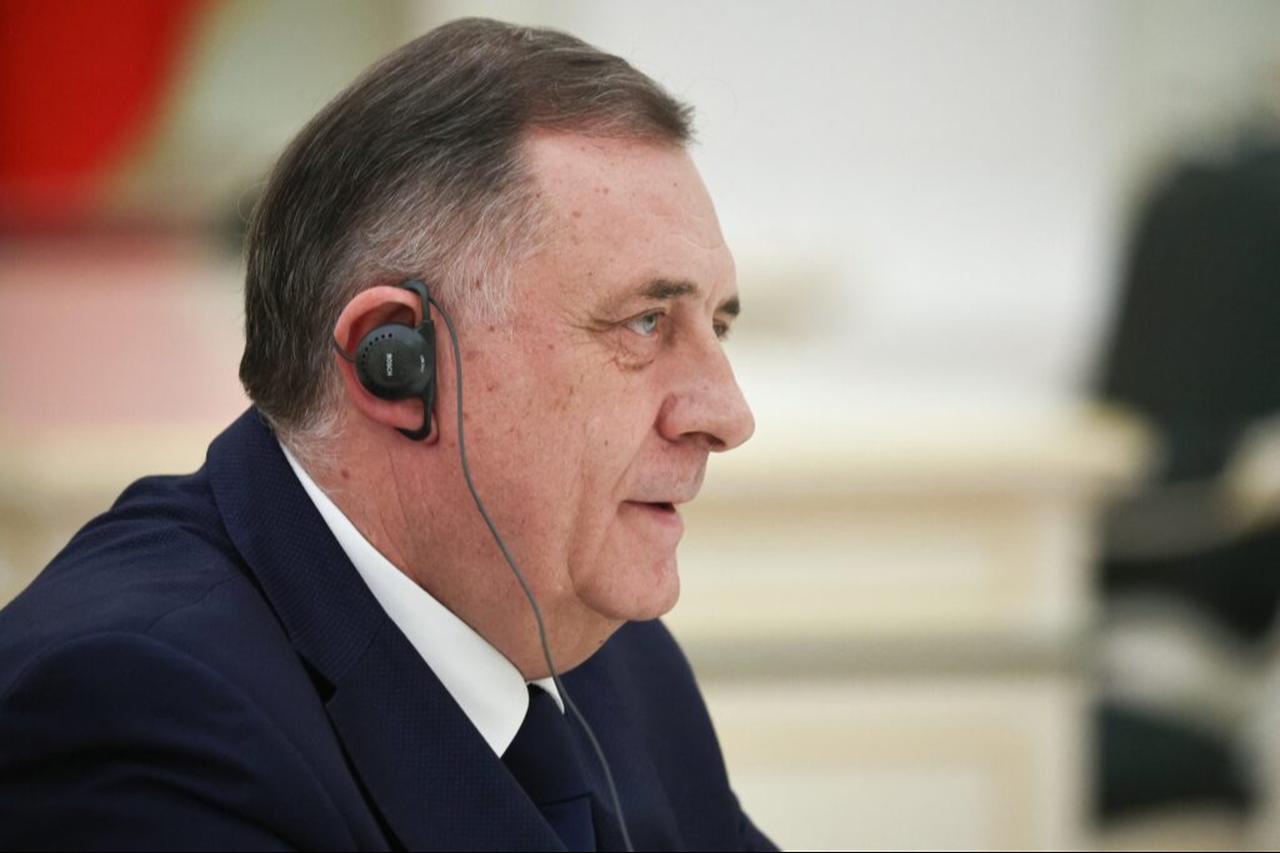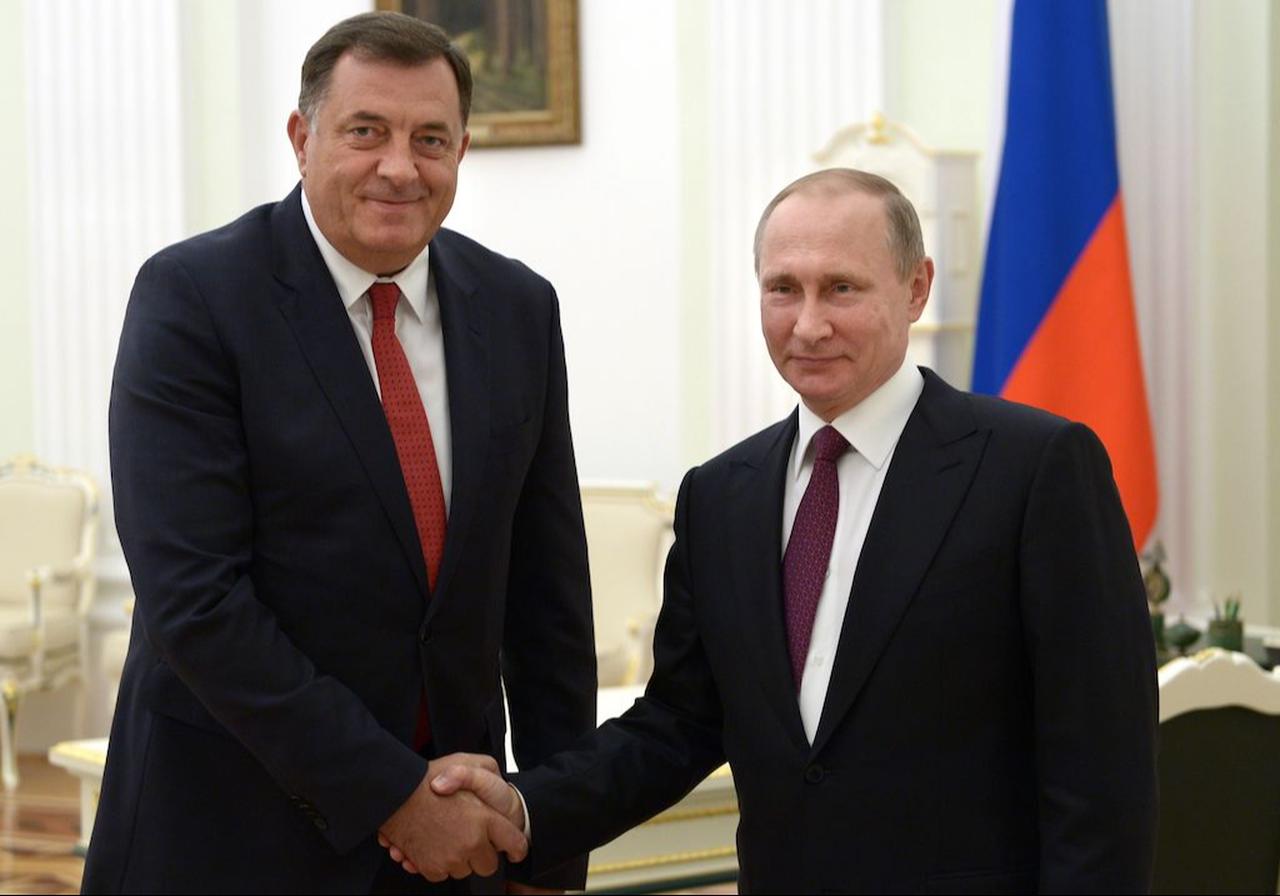
The Trump administration on Wednesday lifted sanctions on Bosnian Serb leader Milorad Dodik, his family members, and close associates, reversing measures imposed for undermining the 1995 Dayton Peace Agreement that ended Bosnia's war more than two decades ago.
The U.S. Treasury Department's Office of Foreign Assets Control (OFAC) announced the decision without providing an explanation.
The move removes sanctions from Dodik, his son Igor, his daughter Gorica, and multiple government ministers and allies.
OFAC did not explain the rationale for removing dozens of Dodik's closest associates from the sanctions program. However, Serb officials have indicated they have been working quietly to establish a more cooperative relationship with the U.S. while maintaining friendly ties with Russia.

Dodik was first sanctioned in 2017 by the Obama administration for defying Bosnia's Constitutional Court and obstructing implementation of the Dayton Peace Agreement.
At that time, the Treasury Department accused him of threatening "sovereignty and territorial integrity of Bosnia and Herzegovina."
The Biden administration imposed additional sanctions on Dodik in 2022.
Earlier this year, a Bosnian court sentenced Dodik to one year in prison and barred him from politics for six years for defying the authority of the top international official overseeing implementation of the Dayton Peace Agreement.
In a post on X, Dodik thanked U.S. President Donald Trump and his associates "for correcting a grave injustice," characterizing the decision as "not merely a legal correction, but also a moral vindication" of those who served Republika Srpska.
"The decision to lift the sanctions is not merely a legal correction, but also a moral vindication of the truth about Republika Srpska and all those who have served it with honor," Dodik said on X.
He had described previous sanctions under the Obama and Biden administrations as a "great injustice done to Republika Srpska, its representatives, and their families."
"Once again, it has become clear that the accusations made against us were nothing but lies and propaganda - the very foundation of the chaos created by Christian Schmidt, chaos that must now be undone. To those who, over the years, took satisfaction in these falsehoods and believed the slander of others, I can forgive everything - except the years we lost because they believed Republika Srpska would fall," Dodi added.
"Today, it is clear: Republika Srpska will never fall," he lastly claimed.

Known for frequent secessionist rhetoric, Dodik has repeatedly argued that Bosnia should adopt a new political agreement or that Republika Srpska should separate entirely from Bosnia and Herzegovina.
In June 2023, the Republika Srpska National Assembly under Dodik's leadership voted to reject decisions made by High Representative Christian Schmidt, voting not to publish his orders in the entity's Official Gazette.
Schmidt, possessing the authority to issue binding legislation, rejected Dodik's defiance and annulled the National Assembly's decisions.
Following Dodik's continued separatist statements that "RS should secede from Bosnia and Herzegovina," charges were filed against him for failing to respect the High Representative's orders. Prosecutors sought imprisonment and a ban from political participation.
A trial beginning in December 2023 resulted in a one-year prison sentence and a six-year ban from politics. The Bosnia and Herzegovina Court converted the prison sentence to a fine. The Central Election Commission of Bosnia and Herzegovina unanimously removed Dodik from office based on the political ban.
On October 18, Bosnian Serb lawmakers appointed an interim president, officially acknowledging for the first time that Dodik was stepping aside after the state court ban. The temporary president will serve until early presidential elections scheduled for November 23.
The parliament also annulled a series of separatist laws passed over the past year after Dodik was indicted for defying decisions by Bosnia's international peace envoy and the constitutional court.

Senator Jeanne Shaheen, the highest-ranking Democrat on the Senate Foreign Relations Committee, criticized the sanction removal as "reckless and premature."
"Dodik has undermined the Dayton Peace Agreement, cozied up to Putin and profited from corruption — hardly grounds for relief. The American people deserve answers," Shaheen wrote on X.
The sanction removal marks a significant shift in U.S. policy toward Bosnia's nationalist Serb leadership.
Dodik, described as a pro-Russian nationalist, has long advocated for the secession of Republika Srpska from Bosnia and resisted resignation as its president until forced to step aside by court action.